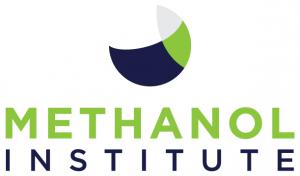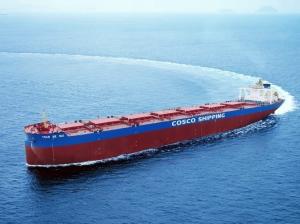Methanol Takes Another Step Forward as China Shipping Giants Opt for Methanol
Chairmen of China Merchants and COSCO Shipping Bulk use discussion of industry’s energy transition to signal support for Methanol as future fuel choice
CMES chairman Xie Chunlin and Gu Jinsong, Chairman of COSCO Shipping Bulk made the comments in a meeting held in late August, during which the two reviewed the co-operation between their companies and exchanged views on the shipping industry’s low-carbon transformation.
At the end of May 2022, the shipping business of China Merchants Group had a fleet of 315 ships (including newbuilding orders) equivalent to 44.6m dwt, ranking second among non-financial shipowners worldwide. COSCO Shipping Bulk operates a fleet comprising some 400 bulk carriers, equivalent to nearly 40m dwt.
“China has set a target to achieve peak carbon and ultimately carbon neutrality and several government ministries have referenced low carbon and renewable methanol development from green hydrogen and methanol-fuelled vessels as key enablers for these policies,” says Kai Zhao, Chief China Representative, The Methanol Institute. “That places methanol at an entry point on the transition curve where two leading Chinese companies can reduce GHG emissions and achieve carbon neutrality in the longer term.”
The news comes in a year that has already seen some of the industry’s biggest players commit to Methanol dual fuel newbuildings as a means to progressively reduce carbon emissions and cut ship-source pollution.
Lines including AP Moller-Maersk, CMA-CGM and X-Press feeders placed orders or increased their commitments for methanol newbuild vessels. Methanol is viewed as an available, practical and affordable alternative marine fuel as natural gas prices spiral and demand grows for a fuel that can offer short-term carbon reductions and deliver long-term lifecycle benefits as renewable products become available.
Companies including Waterfront Shipping, Stena/Proman, NYK and MOL have built a series of Methanol carriers that use a segregated portion of the cargo as fuel.
“China is already a leader in production of renewable energy and the shift towards Methanol long term is in step with its decarbonisation ambitions,” says Chris Chatterton, Chief Operating Officer, The Methanol Institute. “The shipping industry can’t wait for fuels that may be decades away from approval and availability; shipowners need to start making carbon savings and Methanol can provide that transition now.”
With more bulk shipowners exploring Methanol as fuel, this year has seen Methanol/dual-fuel designs for bulk carriers and tankers coming to market. Main engine makers report full order books for new units and increasing interest in retrofits and conversions of existing engines.
In February this year, COSCO Shipping Energy Transportation unveiled a Methanol-fuelled VLCC design developed with CSSC's Dalian Shipbuilding Industry with Approval in Principle granted by class societies DNV and CCS.
Ends
About the Methanol Institute
The Methanol Institute (MI) is the global trade association for the methanol industry, representing the world’s leading producers, distributors, and technology companies. Founded in 1989 in Washington DC, MI now represents its members from five offices around world in Washington DC, Beijing, Brussels, Delhi, and Singapore. MI serves its members as the voice of the methanol industry, representing companies within the membership to governments and businesses around the world to promote the sustainable growth of the industry. MI focuses on advancing the utilization of methanol as a clean fuel in energy-related applications such as land & marine transport, power generation, fuel cells, industrial boilers, and cook stoves. MI also supports sustainable and renewable process to produce methanol as a carbon-neutral chemical and fuel. For more information, please visit www.methanol.org.
Neville Smith
Mariner Communications
+44 7909 960182
email us here
Legal Disclaimer:
EIN Presswire provides this news content "as is" without warranty of any kind. We do not accept any responsibility or liability for the accuracy, content, images, videos, licenses, completeness, legality, or reliability of the information contained in this article. If you have any complaints or copyright issues related to this article, kindly contact the author above.


